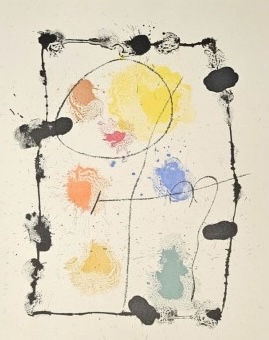The grey room: Scenario 1. Cabello/Carceller
Prats Nogueras Blanchard is delighted to present The grey room: Scenario 1, an exhibition by Cabello/Carceller (1963, Paris, FR / 1964, Madrid, ES) at our space in Barcelona.
A few words about The Grey Room: Scenario 1
In colour theory, grey is its own complementary, medium grey is self-absorbed, while lighter shades complement darker ones, and vice versa. Depending on the dominant shades, the range of greys could be infinite. But when we think of the possibilities that greys offer us, we go far beyond a chromatic world, we think of many, many more things… According to Peter Sloterdijk, Paul Cézanne had said that ‘as long as you have not painted a grey you are not a painter’. And, paraphrasing the painter, he himself affirms that ‘as long as you have not thought in grey, you are not a philosopher’. We didn’t need them very much; we thought and painted in greys a long time ago, but in deeply connoted ranges of greys, in all the shades that are hidden under an expanded taxonomy that would encompass multiple indeterminate colours, the unclassifiable, those that are the sum of many in unison, the strange mixtures, the unexpected or even disconcerting.
“I am talking about myself, naturally” (Alejandra Pizarnik)
Grey is also the colour of melancholy. The grey room: Scenario 1 is thus thought of as a state of mind. The experience of melancholy arises from an ambivalent sensation, of thinking about the possibilities of a future that the present exhausts and the past yearns for. It would seem that utopia has disappeared (that it is no longer within our reach). Melancholy expands as a necessary impasse to think about the reasons and, above all, to reflect on the ways we can find to abort the violent promise that threatens dissident bodies, minority bodies, weakened bodies? And also those who do not seem to dissent, because hatred and contempt for the other generate addiction and have no end. Faced with this landscape, the mind of the melancholic subject is populated by parasitically recurrent thoughts, but which slowly push towards a meditated reaction. The indiscipline of melancholy, its lassitude, its futility in an environment of infantilising hyperactive progress, allows us to inhabit, albeit temporarily, in intermediate spaces, in observatories from which to analyse the untimeliness of the present moment.
“To understand something is to understand its topography, to know how to chart it. And to know how to get lost” (Susan Sontag)
The individual occupies an ambivalent position. On one hand, he repudiates a socialization influenced by a system that constrains him, often hindering his ability to confront and acknowledge his own desires. On the other hand, his emergence as a subject inevitably occurs within the linguistic frameworks articulated by the system itself; his affiliation with the system constitutes his own condition of possibility. The subject emerges as a subject, emerges as subjected, and is traversed by the mechanisms of subjugation, ultimately recognizing that there is no escape unless he is willing to engage with the game.
The subject is in an ambivalent position. On the one hand, he rejects a socialisation traversed by a system that constrains him, that often prevents him from confronting and recognising his own desires. On the other hand, his emergence as a subject necessarily takes place within within the linguistic frameworks articulated by the system itself; his belonging to the system is his own condition of possibility. The subject emerges subject, emerges subjected, emerges traversed by the mechanisms of subjection and recognises that there is no way out unless he is willing to engage with the game.
“Social categories signify subordination and existence at once” (Judith Butler)
Cabello/Carceller





